How Many Hours of Sleep Do Dogs Really Need Each Day?
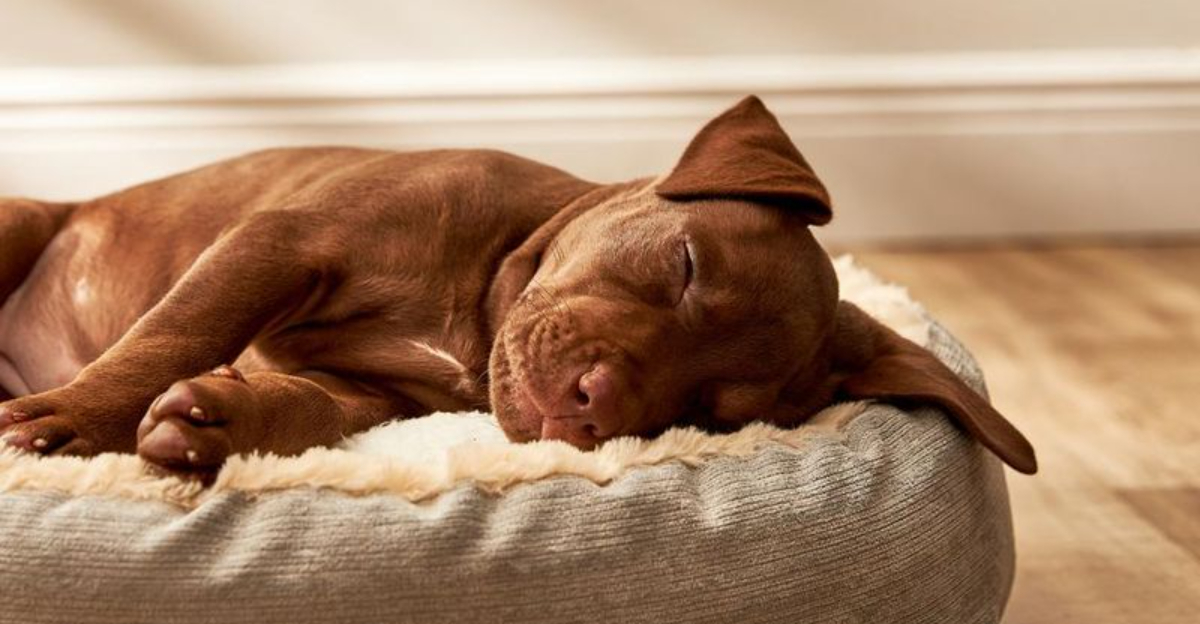
Ever wondered if your furry friend is snoozing too much or too little? Dogs, like humans, have unique sleep patterns and needs.
While you might think they’re just lazy, there’s a lot more to canine sleep than meets the eye. Dive into these 14 fun facts and discover surprising insights about your dog’s slumber.
1. The Science Behind Dog Sleep: How Much Is Normal?
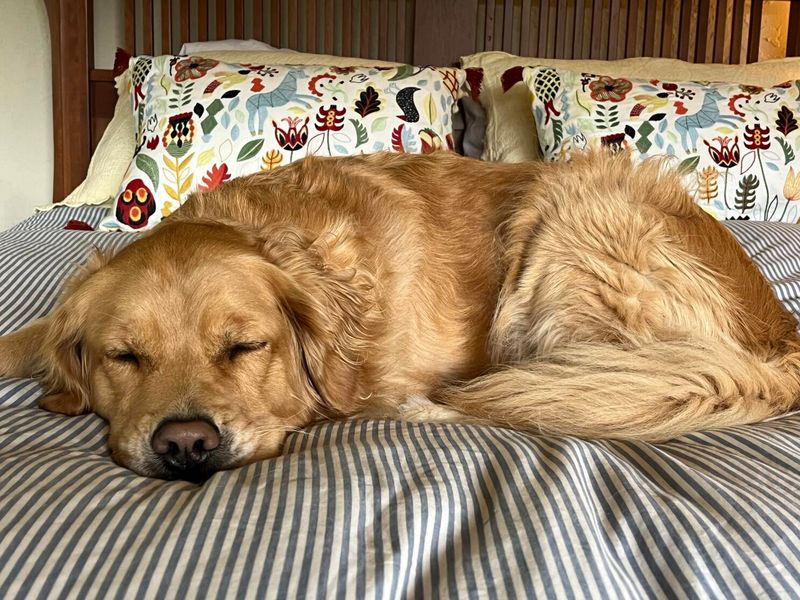
Ever caught your dog napping and thought, “Again?” Dogs typically need around 12-14 hours of sleep a day.
This might sound like a lot, but remember, dogs are polyphasic sleepers, meaning they sleep multiple times throughout the day.
In the wild, canines conserve energy by sleeping, ready to spring into action when needed. This behavior hasn’t changed much, even with domestication.
So, the next time you see your pooch snoozing, know it’s built into their DNA, much like how humans need a solid night’s rest.
2. Factors That Influence How Much Sleep Your Dog Needs

Just like us, dogs have unique needs. Age, breed, and activity level can all influence how much they sleep. A working dog may sleep less because they’re on the go, while a toy breed might adore their naps.
Size matters, too. Larger breeds often sleep more than their smaller counterparts. It’s as if each dog has its own personal sleep code!
Understanding this helps tailor their environment to suit their individual rest needs, ensuring they stay healthy and happy.
3. Puppies Vs. Adults: How Dog Sleep Needs Vary By Age

If you’ve ever had a puppy, you know they’re full of energy yet sleep a lot! Puppies can snooze for 18–20 hours a day, growing while they dream. It’s like a toddler in a growth spurt – they play hard and sleep harder!
Adult dogs, however, generally settle into a pattern of 12–14 hours. As they age, their sleep may change again, requiring adjustments to their routine.
Recognizing these stages ensures your furry friend gets the rest needed at each life phase.
4. How Much Sleep Is Too Much? Recognizing Sleep Issues in Dogs

Ever worry your dog might be sleeping too much? While it’s normal for dogs to enjoy their nap time, excessive sleep can be a sign of health issues. Think of it like hitting the snooze button one too many times.
If your dog seems lethargic or disinterested in play, it might be worth a vet visit. Addressing sleep issues early ensures they don’t miss out on life’s adventures. It’s all about finding that sweet sleep balance!
5. How Sleep Affects Your Dog’s Health And Well-Being
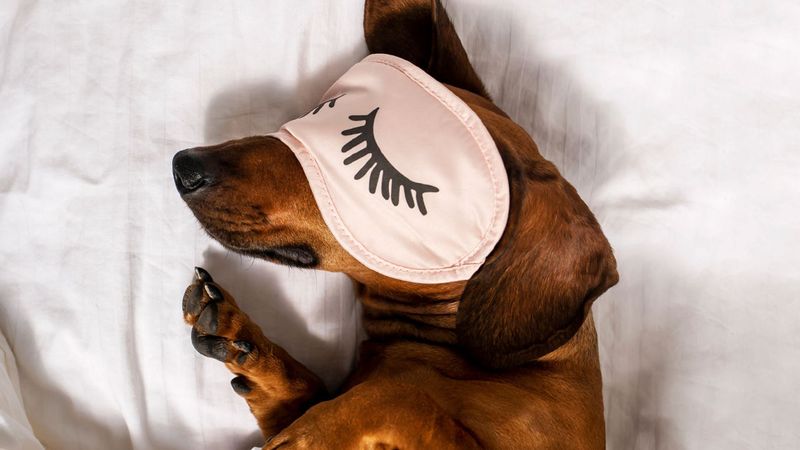
Sleep is vital for your dog’s health. It affects their mood, energy levels, and even their immune system.
Think of it as your dog’s personal recharge station. Without enough sleep, your pup might be cranky – like us before our morning coffee!
Quality sleep supports brain development, memory, and learning. It’s no wonder they dream of chasing squirrels and playing fetch! Ensuring your dog gets enough rest is a cornerstone to a happy and healthy life.
6. The Role Of Activity Levels In Your Dog’s Sleep Schedule
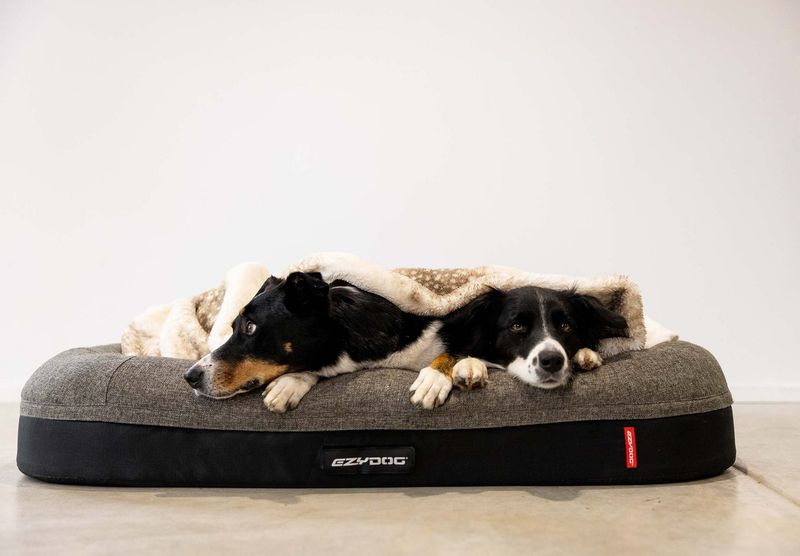
Active dogs often need more sleep to recover. It’s part of their natural cycle. Regular exercise ensures they’re tired enough to rest soundly.
However, it’s not just about physical activity. Mental stimulation, like puzzle toys, also tires them out. Balancing activity with rest keeps your pup lively and content. It’s like finding the perfect rhythm in a dance!
7. How Sleep Patterns Change In Dogs Based On Breed
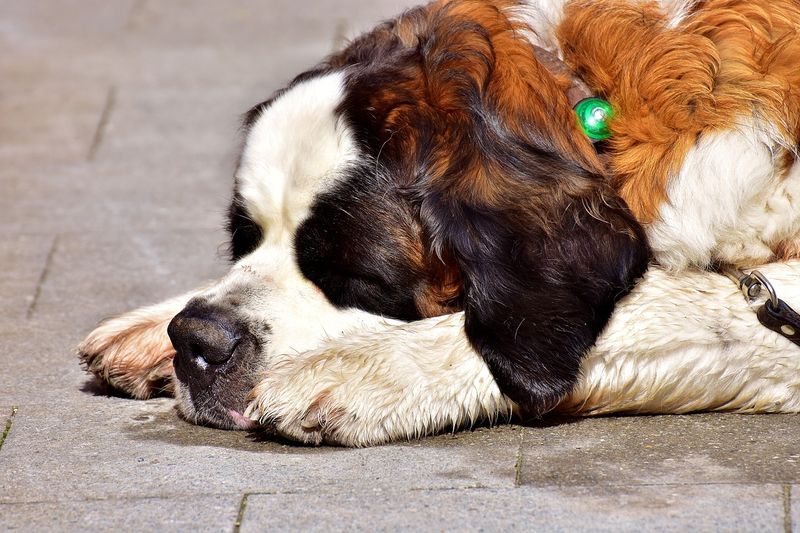
Ever noticed how some dogs are more laid-back than others? Breed plays a big role in sleep habits.
Greyhounds, for instance, love a good sprint followed by a long nap. Meanwhile, Basset Hounds might take it slow and steady, snoozing at every opportunity.
Understanding breed-specific sleep needs helps create a comfortable routine. It’s like knowing your friend’s favorite coffee order – tailored to perfection!
8. Why Older Dogs May Need More Sleep And Rest
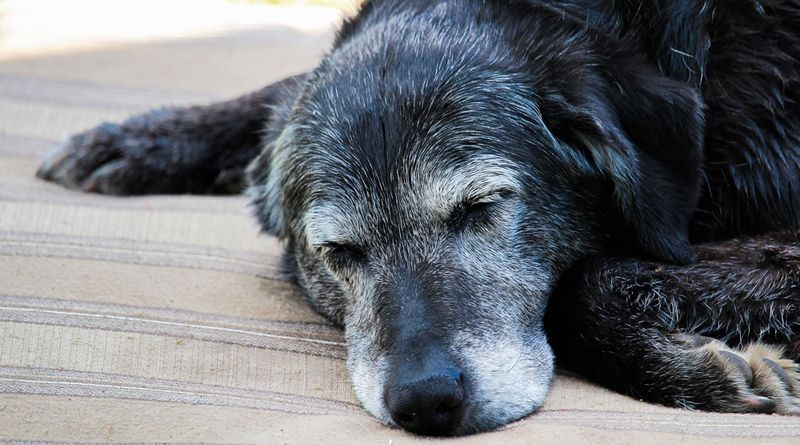
As dogs age, their energy levels dip, and they require more sleep. It’s like us wanting more downtime as we get older. Older dogs may nap more frequently, and that’s perfectly normal.
Providing a soft bed and a quieter environment can make a world of difference. Embracing these changes ensures your senior dog’s golden years are filled with comfort and love.
9. Creating A Healthy Sleep Environment For Your Dog
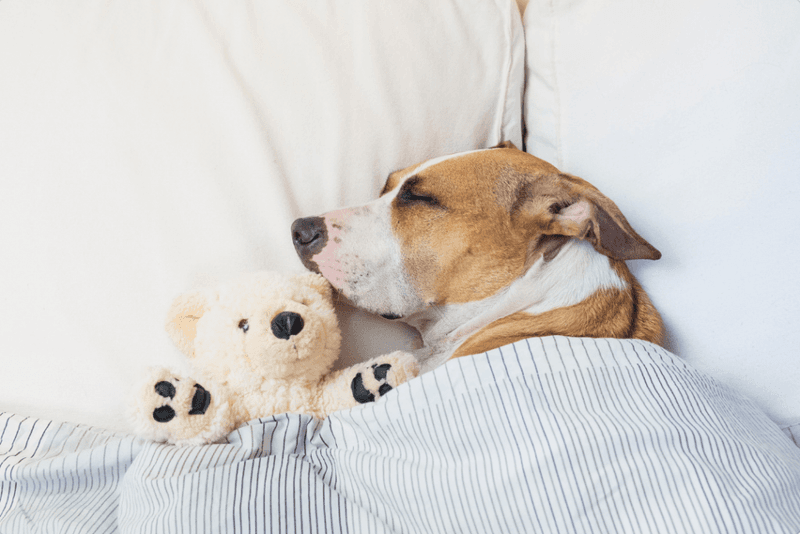
Setting the stage for good sleep involves more than just a comfy bed. Consider the room’s temperature, lighting, and noise levels.
A peaceful setting encourages deeper rest. Adding a blanket or favorite toy can make them feel secure. It’s about crafting a little haven where they can truly relax.
10. What Happens When Dogs Don’t Get Enough Sleep?
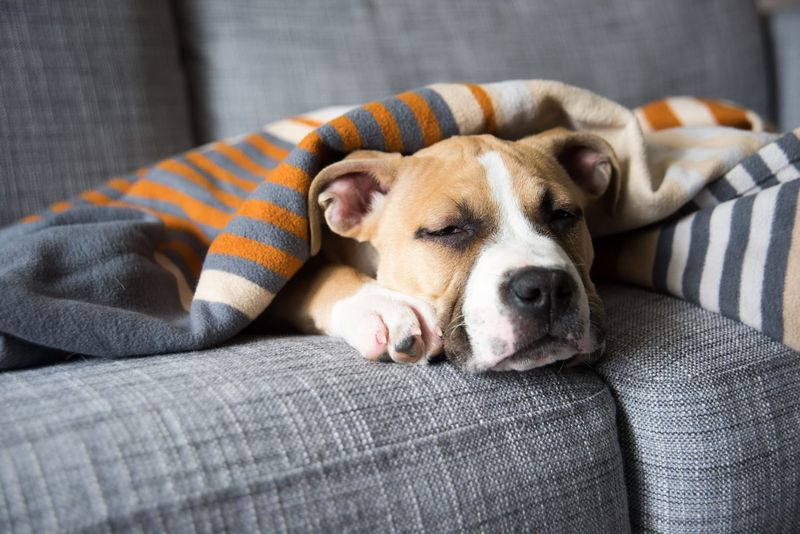
Lack of sleep can lead to issues like irritability and lack of focus. It’s similar to how we feel after a restless night. Dogs may become more anxious or hyperactive, unable to settle down.
Ensuring they have a consistent sleep schedule prevents these problems. Proper rest is crucial for their mental and physical health – keeping them as bouncy and joyful as ever!
11. How To Tell If Your Dog Is Sleeping Too Much Or Too Little
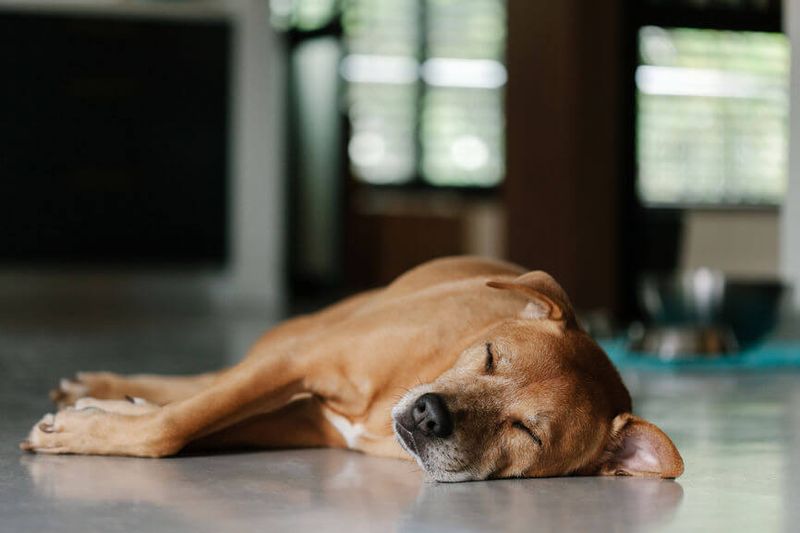
Wondering if your dog’s sleep is off-kilter? Keep an eye on their daily habits. Are they sleeping more than usual, or struggling to catch enough Z’s? It’s like tuning into a favorite TV show and noticing a change in the storyline.
A vet can help determine if their sleep needs adjusting. Remember, every dog is unique, and so are their sleep patterns!
12. The Benefits Of A Regular Sleep Schedule For Dogs
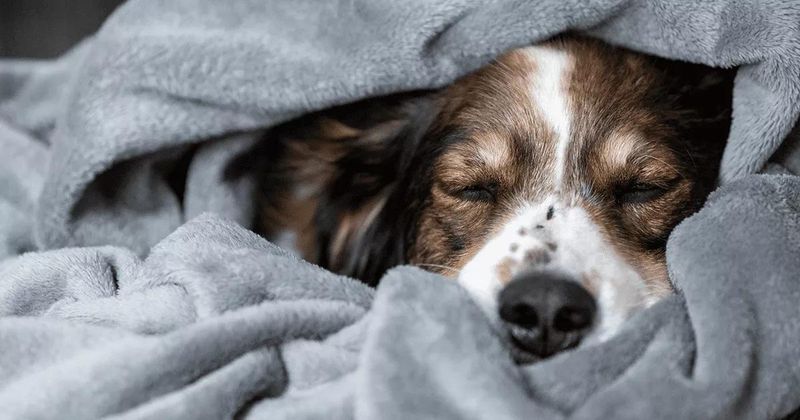
Consistency is key for dogs, especially when it comes to sleep. A regular schedule helps regulate their internal clock, just like ours.
Routine provides comfort and predictability, reducing stress and keeping them happy. It’s all about creating a balanced lifestyle that suits their needs.
13. Canine Sleep Disorders: What To Watch Out For
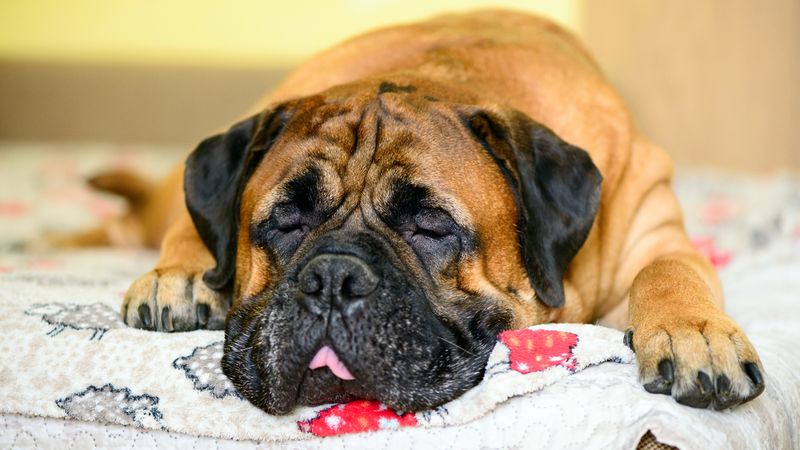
Sleep disorders aren’t just a human thing – dogs can experience them too. Conditions like sleep apnea or insomnia may affect their quality of life. It’s like a mystery novel, where clues reveal an underlying issue.
Spotting these signs early ensures they get the care needed. Regular check-ups and communication with your vet can make all the difference.
14. How To Encourage Healthy Sleep Habits For Your Dog
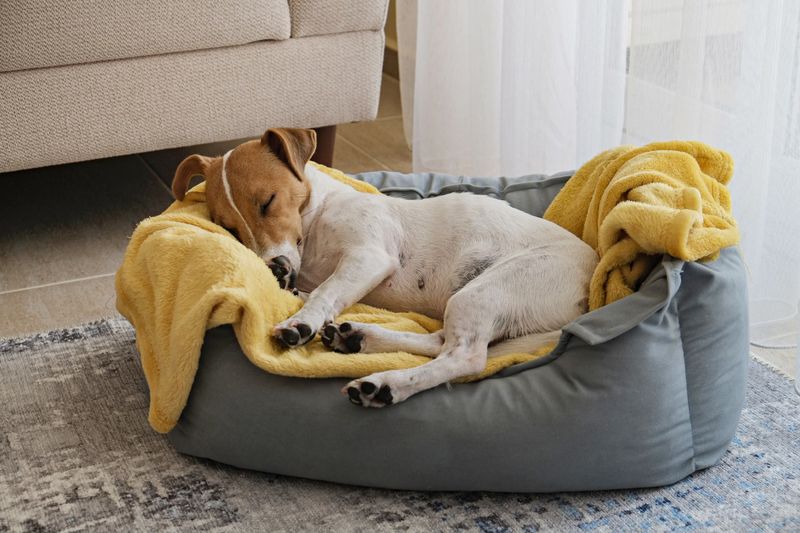
Helping your dog develop healthy sleep habits involves routine and environment. Establish a bedtime routine similar to a child’s – calming and soothing. Incorporate gentle playtime and quiet moments before bed.
Providing a cozy bed and a peaceful setting enhances their sleep quality. It’s about nurturing their well-being, one snooze at a time!






